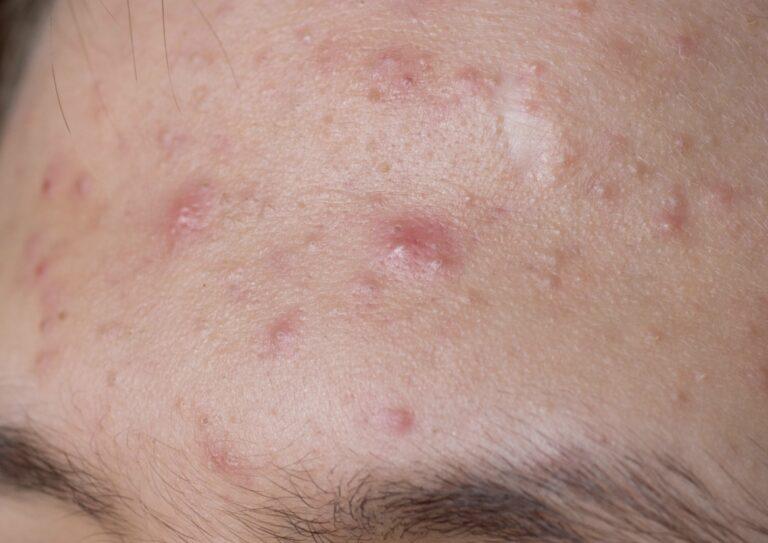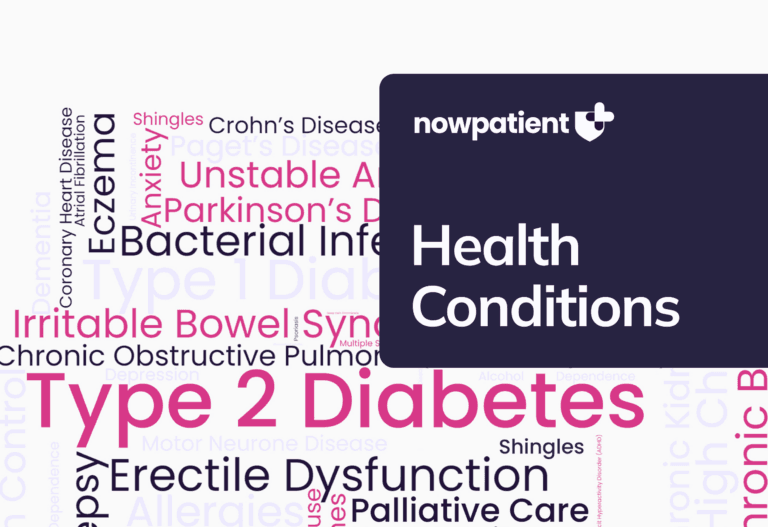
Coffee is the most popular drink in the world. Chances are it’s the way you start your day and jump-start your afternoon.
But is caffeine bad for you?
Perhaps because it’s so popular, there are lots of myths and strange beliefs about coffee. Some people treat it like it’s a dangerous drug that should be avoided at all costs. You may have heard coffee stunts your growth, gives you cancer, and damages your heart. There’s no evidence for any of this though. In fact, coffee is generally considered healthy.
But what about if you have acne? You may have heard coffee can be bad for your skin and that it can make your acne worse. You can find thousands of websites, and blogs, and videos that confidently go into great detail about this. Lots of them sound convincing.
So, can coffee cause acne? Or is this just more coffee slander? Let’s look at what the science really says about coffee and acne.
Claim 1 – caffeine causes acne
The claim: Caffeine itself gives you acne or makes it worse. Does that mean that energy drinks cause acne too?
The evidence: So, is caffeine bad for acne? There isn’t any evidence that says so. This is a long-standing belief about caffeine, but no studies on diet and acne have ever found a relationship between caffeine and acne.
The verdict: Myth.
Claim 2 – caffeine dehydrates your skin
The claim: Caffeine is a diuretic, meaning it makes you lose water by urinating. The more coffee you drink, the more water you lose, meaning your acne gets worse as your skin gets drier.
The evidence: It’s true that caffeine is a diuretic. But research has shown that people who drank three to six cups of coffee a day were equally as hydrated as people who just drank water. This is likely because the amount of water caffeine makes you lose is less than the amount of water in your cup of coffee.
Verdict: Myth.
Claim 3 – caffeine raises your stress levels
The claim: Caffeine heightens your body’s stress response, making you release stress hormones like cortisol (this is called coffee cortisol!). Cortisol can increase the amount of natural skin oil (sebum) you produce. Sebum blocks your pores, causing acne.
The evidence. Caffeine has been shown to heighten your stress response in demanding situations. And research has also shown stress can increase the chances of you having acne, although not by increasing sebum levels.
Verdict. There are no studies that directly link drinking coffee to having higher levels of sebum or being more likely to have acne. But there is a possibility coffee could contribute to acne by making you react more strongly to stress.
Claim 4 – coffee makes you less sensitive to insulin
The claim: Coffee makes you less sensitive (more resistant) to the hormone insulin. The less sensitive you become, the more insulin your body produces. High levels of insulin can give you acne by making you produce more sebum and skin cells that can clog your pores and increase inflammation that can make acne worse.
The evidence: There is evidence that higher levels of insulin increases sebum and skin cell production and increases inflammation. And there is evidence linking high levels of insulin to acne.
But the evidence that coffee can cause insulin resistance is less convincing. Studies have shown coffee can increase insulin resistance in the short term, but there’s also evidence it can have a protective effect against insulin resistance in the long term.
The verdict: There’s a possibility that coffee could cause acne by making you less sensitive (more resistant) to insulin, but this is far from proven.
Claim 5 – coffee makes you crave sugary food
The claim: Because coffee heightens your stress response, it makes you crave sugar. The more sugar you eat, the more likely you are to have acne.
The evidence: There is a link between eating foods high in sugar (high glycemic index foods) and acne, probably because these foods make you produce more insulin. And whilst there’s no conclusive evidence that people who drink coffee eat more high-sugar foods, there is evidence that coffee can make you less sensitive to insulin.
The verdict: Again, this could be a possibility, but it’s not proven conclusively.
Claim 6 – coffee contains mycotoxins that can give you acne
The claim: Some coffee beans, and the coffee made from them, have been found to contain toxins called mycotoxins. These toxins damage your health and can cause or worsen acne.
The evidence. Yes, numerous studies have found mycotoxins in coffee. But the levels of these mycotoxins were below harmful levels. You’re surrounded by low levels of mycotoxins anyway, so coffee isn’t exceptional in that fact. And whilst high levels of mycotoxins can make you ill, there’s no evidence they can cause acne.
The verdict: Myth.
Claim 7 – coffee harms your gut flora
The claim: You have an ecosystem of beneficial microorganisms in your gut that help keeps you healthy called your gut flora. Coffee disrupts and harms your gut flora, this means you don’t absorb nutrients from your food properly, leading to acne.
The evidence: There is evidence that gut flora could play a role in acne. But research seems to show that coffee drinkers have healthier gut flora than people who don’t drink coffee.
The verdict: Myth.
Claim 8 – milk and sugar in your coffee can give you acne
The claim: It’s not the coffee that’s giving you acne, it’s the milk and sugar you put in it.
The evidence: There is some scientific support behind this. There’s evidence that people who eat high sugar diets are more likely to have acne, and the same is true for dairy. People who drink more cow’s milk are at greater risk of acne.
The verdict: If you drink lots of milky coffee and put sugar in your coffee, it may be contributing to your acne.
Claim 9 – coffee can improve your acne
The claim: Coffee is high in antioxidants, and people who have low levels of antioxidants are more likely to have acne.
The evidence: Antioxidants are nutrients found in food and drink that can have health benefits, and coffee is rich in lots of them. People with acne are more likely to have low levels of the antioxidants vitamin A and E, which are found in coffee.
The verdict: So, is coffee good for acne-prone skin? There is no definitive evidence that coffee can reduce acne, but it does raise the possibility it could help.
Should you quit coffee if you have acne?
You’re welcome to give it a try, of course, but we’d say there’s no need. Is coffee bad for your skin? The science generally says no. Despite what the internet might tell you, there’s no good evidence that people who drink coffee are more likely to have acne, and coffee may even help with your acne.
Coffee could contribute to acne if you drink it with a lot of milk and sugar, if you’re stressed, and if you’re partial to eating sugary snacks with your coffee. If you’re worried about this, you can cut back on the milk or try non-dairy milk and ditch the sugar and snacks. You can try and reduce your levels of stress, but that’s easier said than done, we know.
Try an acne treatment
If you have acne, rather than missing out on your coffee fix, a far more effective way to fight it is to try a scientifically proven treatment.
Consider a prescription treatment called tRetinoin (Retin A). Tretinoin helps fight acne by removing the dead skin cells and oil that build up on your face. It can also reduce inflammation, kill bacterial infections in your spots, and improve the overall quality of your skin. You can purchase tretinoin with a prescription FROM MARS, simply start an online consultation today.
Sources
Medical Disclaimer
NowPatient has taken all reasonable steps to ensure that all material is factually accurate, complete, and current. However, the knowledge and experience of a qualified healthcare professional should always be sought after instead of using the information on this page. Before taking any drug, you should always speak to your doctor or another qualified healthcare provider.
The information provided here about medications is subject to change and is not meant to include all uses, precautions, warnings, directions, drug interactions, allergic reactions, or negative effects. The absence of warnings or other information for a particular medication does not imply that the medication or medication combination is appropriate for all patients or for all possible purposes.









